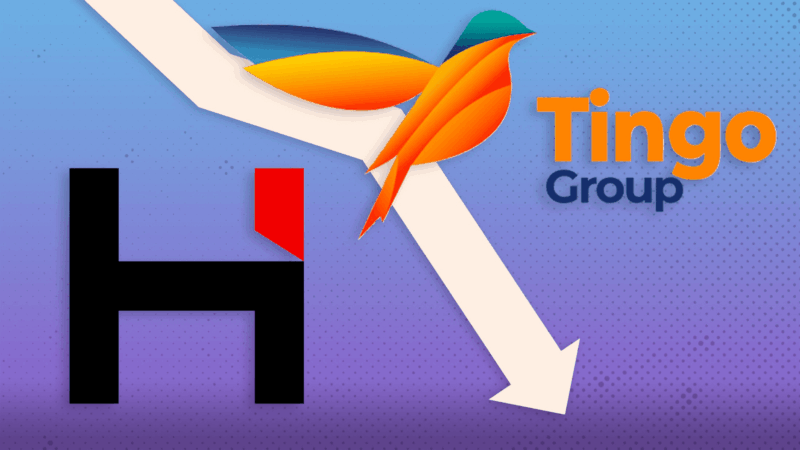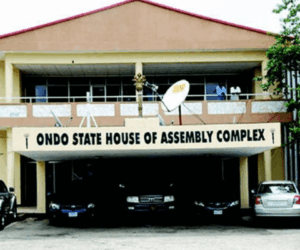The U.S. Securities and Exchange Commission (SEC) has cracked down on a Nigerian auditor and his firm for their role in a massive fraud scheme. Olayinka Oyebola and his Lagos-based accounting firm, Olayinka Oyebola & Co., face a $200,000 fine and a permanent ban from auditing U.S. public companies. The penalties stem from their involvement in the Tingo Group fraud, a scandal that rocked the agri-fintech sector.
Tingo Group, once a Nasdaq-listed company, claimed to revolutionise African agriculture through fintech. Led by founder Dozy Mmobuosi, the company boasted millions of customers and robust operations. However, the SEC exposed Tingo as a “massive fraud” in late 2023.
The agency alleged that Mmobuosi fabricated nearly every aspect of the business, from financials to customer numbers. A federal court fined Mmobuosi and his entities over $250 million in early 2025, barring them from the U.S. securities industry.
Tingo’s collapse sent shockwaves through the tech and financial sectors.

The company’s audited books claimed $462 million in cash reserves, but the SEC revealed only $50 remained. Short-seller Hindenburg Research first flagged the discrepancies, accusing Tingo of being a “clear-cut scam”. The fallout raised questions about the role of auditors in enabling such fraud.
Oyebola’s role in the Tingo Group’s fraud
Olayinka Oyebola and his firm played a critical role in the deception. The SEC alleges that Oyebola knowingly failed to act after discovering fake audit reports bearing his signature.
These fraudulent reports were filed with the SEC, misleading investors, regulators, and subsequent auditors. Instead of reporting the misconduct, Oyebola allegedly helped conceal it, enabling Mmobuosi to perpetuate the multi-year scheme.
The SEC further claims Oyebola made “material misstatements” to one of Tingo’s later auditors.
These false statements allowed the fraud to continue unchecked, inflating Tingo’s financial metrics and deceiving global investors.
Antonia M. Apps, Director of the SEC’s New York Regional Office, condemned Oyebola’s actions. “Oyebola and his firm violated the public trust,” she said. “We will hold gatekeepers accountable when they facilitate fiction rather than truth.”
On August 11, 2025, a New York federal court entered a final judgement against Oyebola and his firm. The penalties include:


– Civil fines: Oyebola and his firm must pay $100,000 each, totalling $200,000.
– Permanent injunctions: They are barred from violating U.S. securities laws.
– Professional suspension: Oyebola and his firm are suspended from practising before the SEC as accountants.
This effectively bans them from auditing U.S. public companies. They may apply for reinstatement after six years.
These measures reflect the SEC’s commitment to punishing enablers of financial fraud. The ban prevents Oyebola’s firm from providing accounting services to any publicly traded U.S. company or those filing with the SEC. The case underscores the agency’s global reach in targeting professionals who undermine market integrity.
The Tingo saga highlights the critical role of auditors as gatekeepers in financial markets. Auditors are expected to uphold transparency and accuracy. However, cases like Tingo reveal systemic issues. A 2020 study by the Association of Certified Fraud Examiners found that auditors uncover less than 4% of frauds. This raises concerns about their effectiveness in detecting misconduct.
Oyebola’s case is not isolated. Big Four firm Deloitte, which also audited Tingo, faced scrutiny for missing the fraud.
Hindenburg Research criticised Deloitte’s oversight, noting that the issues were “glaring enough” for even a novice to spot. Deloitte’s Israeli branch, rather than its Nigerian team, audited Tingo, raising questions about the choice of auditors unfamiliar with the company’s local operations.


The SEC’s pursuit of Oyebola demonstrates its focus on cross-border enforcement. The agency collaborated with the Israel Securities Authority in its investigation, showing its ability to tackle fraud globally.
The charges against Oyebola include aiding and abetting violations of antifraud provisions and lying to auditors. The SEC is also seeking permanent injunctive relief to ensure Oyebola cannot facilitate similar schemes in the future.
This case follows other high-profile SEC actions. In 2023, the agency charged Mmobuosi with orchestrating a “staggering fraud”. His companies, including Tingo Group and Agri-Fintech Holdings, were accused of fabricating assets, revenues, and customers. The $250 million judgment against Mmobuosi marked a significant victory for the SEC.
The SEC’s actions send a clear message: no one is above accountability. Whether in Nigeria or New York, those who enable financial fraud will face consequences.








